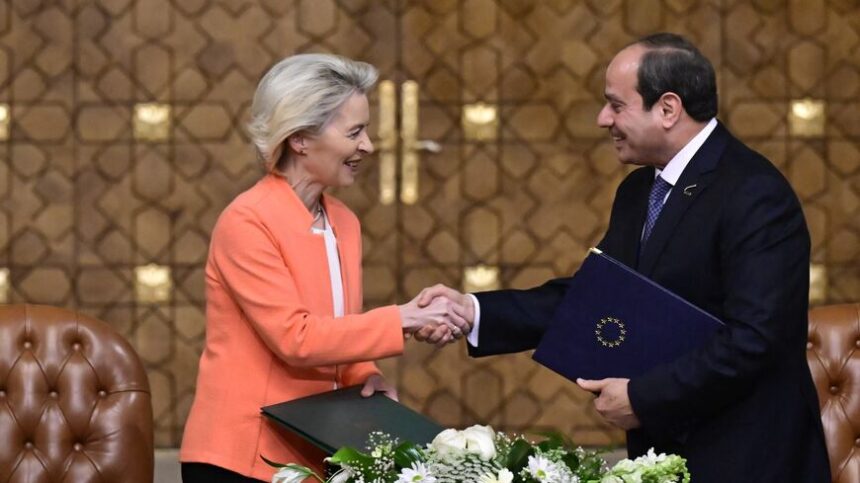The International Monetary Fund (IMF) has reached a staff-level agreement with Egypt, granting access to $1.2 billion in funding to address the country’s economic challenges.
The agreement, which requires approval from the IMF’s executive board, comes amid Egypt’s struggle with double-digit inflation, foreign currency shortages, and reduced Suez Canal revenues.
Ivanna Vladkova Hollar, head of the IMF mission, acknowledged Egypt’s efforts to maintain macroeconomic stability despite regional and global pressures, such as the COVID-19 pandemic, the war in Ukraine, and economic shocks.
She emphasized that fiscal consolidation and a comprehensive reform package are critical for Egypt to rebuild fiscal buffers, reduce debt vulnerabilities, and create room for increased spending on health, education, and social protection.
- Advertisement -
The agreement marks the fourth review under Egypt’s Extended Fund Facility arrangement with the IMF, following in-person and virtual discussions held between November 6 and 20. Among the agreed reforms, Egypt has committed to increasing its tax-to-revenue ratio by 2% of GDP over the next two years, simplifying its tax system, and accelerating the divestment of state-owned enterprises.
The IMF stressed the importance of further measures to mobilize domestic revenues and improve the business environment.
Hollar noted the need for more decisive actions to reduce the state’s role in the economy, level the playing field for private enterprises, and attract foreign investment. These efforts, she said, are essential for unleashing Egypt’s full economic potential.
The deal also builds on previous agreements, including an $8 billion IMF loan approved in March and a $3 billion, 46-month arrangement initiated in December 2022. These loans required Cairo to adopt market-driven currency exchange rates, resulting in a significant depreciation of the Egyptian pound.
The support of the IMF offers vital financial relief as Egypt struggles with economic constraints. To stabilize its economy, regain investor confidence, and ensure long-term growth, the nation must, however, put the agreed-upon measures into effect.










